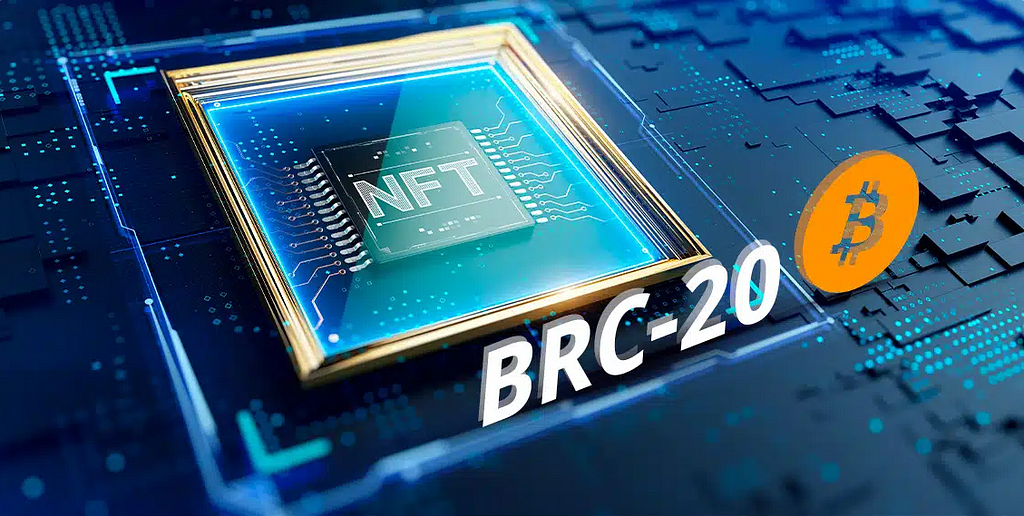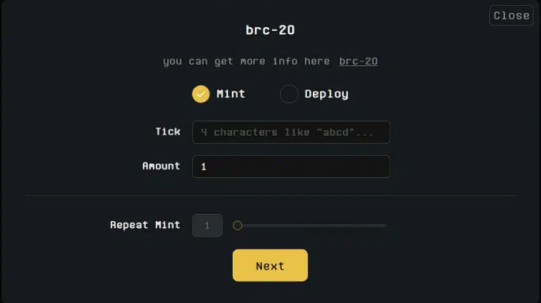BRC-20: THE NEW TOKENS THAT CAN BE ISSUED IN BITCOIN
2
0

- BRC-20 tokens do not interact with smart contracts like Ethereum ERC-20s.Wallets como UniSat ya permiten emitir y administrar tokens BRC-20.
- Wallets such as UniSat already allow BRC-20 tokens to be issued and managed.
BRC-20 tokens are the Bitcoin version of Ethereum’s ERC-20 and are related to the NFT Ordinals technology.
BRC-20 is an experimental mode standard for issuing and transferring fungible tokens on the Bitcoin network. The deployment, issuance and transfer of these tokens is done by means of a JSON data entry. Hence its relation to Bitcoin’s NFT Ordinals.
The creation of this standard is credited to a developer known as Domo on Twitter. On 8 March, the computer scientist announced his progress in this area and acknowledged that it would be difficult for him to take this test any further. For this reason, he preferred to share the project for others to experiment with.
One of the easiest ways to issue and manage these tokens is offered by the UniSat wallet, which CryptoNews reviewed in its most recent update. The wallet allows you to create an entry with the token’s details, such as the name, the acronym that will identify the token, the total amount and the owner.
The registration is stored on the Bitcoin blockchain as part of the transaction that sends the satoshi associated with the owner’s token. Once the registration is created, the token can be verified in any browser with support for NFT Ordinals.

Bitcoin’s BRC-20s vs Ethereum’s ERC-20s
The name BRC-20 is a reference to Ethereum’s ERC-20 standard. However, the two standards differ in several features, especially because of the differences between the networks they run on, Bitcoin and Ethereum.
First of all, Bitcoin’s BRC-20 tokens do not have the ability to interact with smart contracts, while ERC-20 tokens do. Other limitations of BRC-20 tokens versus Ethereum tokens are that they cannot have decimals, cannot be burned or frozen, and cannot have additional functions such as approval or delegation.
Domo has repeatedly emphasised that his idea of BRC-20 tokens should not, under any circumstances, be considered the quintessential Bitcoin fungibility standard.
“This is an extremely dynamic experiment and I am keen to discourage any financial decisions that might be made based on its design. However, what I do want to do is encourage the Bitcoin community to play with the designs and optimisations of the standard, until a consensus on best practices is reached (or we all decide together that this is a bad idea)”.
Domo, developer and creator of the experimental BRC-20 standard
Domo advises people not to spend a lot of money issuing these tokens, which, to him, are worthless. In fact, the developer recommends other tools and protocols for issuing Bitcoin assets, such as Taro, which he says is “unequivocally” a more optimal option for this. Although, as CryptoNews reported earlier this month, a judge in California, US, ordered Lightning Labs to suspend the development of Taro.
Source: CriptoNoticias
Disclaimer: The information set out herein should not be taken as financial advice or investment recommendations. All investments and trading involve risk and it is the responsibility of each individual to do their due diligence before making any investment decision.
2
0







